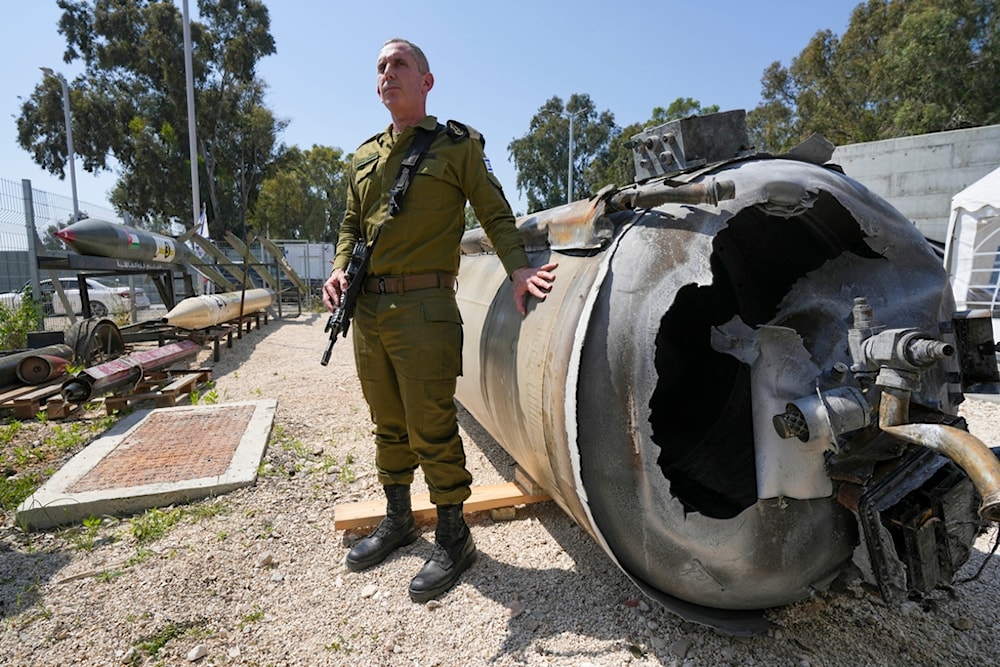Large number of fronts is a problem for 'Israel': ex-Shin Bet chief
In an interview with the Israeli newspaper Maariv, Yaakov Peri elaborates on the tough position "Israel" is currently in due to its several fronts and lack of decision-making.
-

Israeli military spokesperson, Rear Adm. Daniel Hagari, displays to the media one of the Iranian ballistic missile boosters being marketed as an intercepted missile, in Julis army base, southern occupied Palestine, Tuesday, April 16, 2024 (AP Photo)
Israeli media reported that the former head of the Shin Bet, Yaakov Peri, said the existence of several fronts against "Israel" poses a problem for the latter amid internal political division and government instability.
In an interview with the Israeli newspaper Maariv, Peri said that "Israel" is fighting on a large number of fronts adding that it will not be able to find a solution or decision any time soon on any of them.
On Gaza
Peri said that the Rafah invasion plan will not happen any time soon due to the internal and political hurdles that stem from political conflict toward Egypt, the Israeli captives issue, and the international pressure on "Israel."
On the Northern Front
Addressing the battles on the Northern Front, Peri labeled them as very difficult and concerning emphasizing that in the current situation, it does not seem like a solution can be found, and going to war would pose a bigger problem.
Al-Quds and the West Bank
The former head of the Shin Bet said that the level of operations in the West Bank and al-Quds has been increasing stressing that this constitutes a worrying and problematic front.
On Yemen and Iran
Peri also reminded me of the front with Yemen and the dangers in the Red Sea as well as the security issues in Eilat/Umm al-Rashrash and Southern-occupied Palestine.
He also stressed that this was the first time "we witnessed" a direct clash with Iran.
Chaos, resignations, captives
The former head of the Shin Bet warned that the presence of Israeli occupation forces in Gaza is unwanted and can be dangerous stressing that this large number of fronts amid the political rift and governmental instability creates a particular problem.
He added that the absence of a decision regarding the "day after" only enhances the spoils of "our enemies" and encourages them stressing that "Israel" exhibits instability and a lack of determination in taking decisions.
Addressing the series of resignations of senior Israeli officers, Peri said that this only shows weakness and threatens the continuation of "Israel's" functioning on its many fronts.
Peri also said that the current "sad truth" is that Hamas and Hezbollah have emerged victorious and that is evident by the fact that tens and thousands of Israeli settlers have left the settlements and no one knows if or when they will be able to go back.
In his opinion, the Israeli captives can only be returned if "Israel agrees to difficult but necessary concessions," stressing that the sooner it decides on these concessions the sooner they can bring them back.
Peri expressed his optimism that "Israel" will succeed in "fulfilling all its objectives", however, it may be able to achieve some of them in the future adding that "the situation in Israel is not looking good" and "is triggering local and international criticism towards it."

 3 Min Read
3 Min Read








